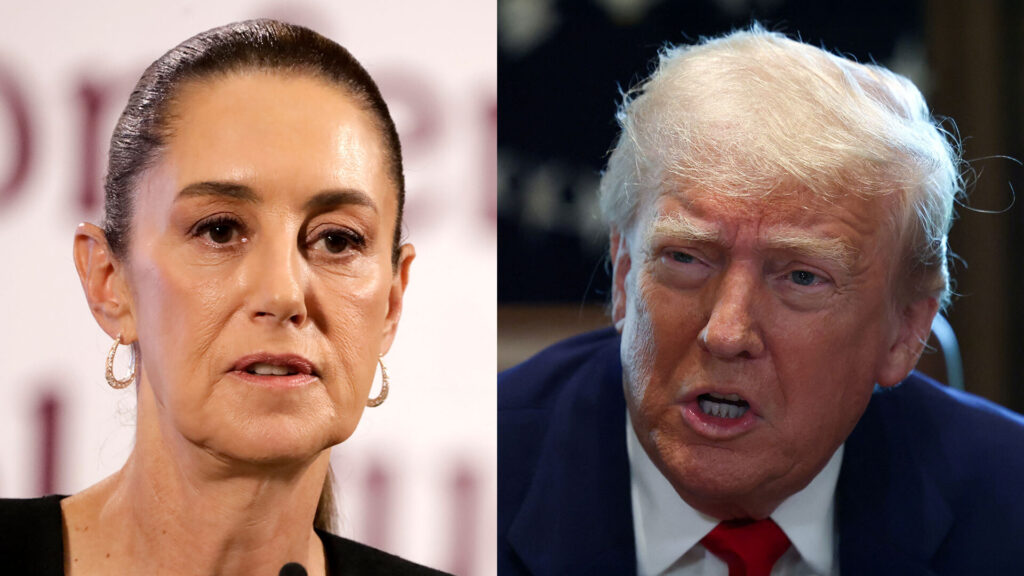Mexican President Claudia Sheinbaum said she declined an offer from United States President Donald Trump to deploy American military personnel to Mexico. Speaking to supporters on Saturday, Sheinbaum shared details of an April 16 phone call with Trump in which he proposed U.S. troop involvement as part of efforts to combat drug trafficking.
According to the Wall Street Journal published on Friday, May 2, tensions rose during the 45-minute call between the two leaders when Trump “pushed to have U.S. armed forces take a leading role in battling Mexican drug gangs.” Sheinbaum said she rejected the offer and reportedly told Trump, “Sovereignty is not for sale. Sovereignty is loved and defended.”
In a statement released on Saturday, May 3, White House National Security Council spokesperson James Hewitt said Trump “has worked closely with Mexico’s president to achieve the most secure southwest border in history,” the Associated Press reported.
However, Hewitt claimed “dangerous foreign terrorist organizations” continue to threaten that shared security, and Trump has been “crystal clear that Mexico must do more to combat these gangs and cartels and the United States stands ready to assist and expand the already close cooperation between our two countries.”
Meanwhile, Trump confirmed to reporters aboard Air Force One on Sunday, May 4 that he offered to send U.S. troops to Mexico. He criticized Sheinbaum for rejecting the proposal and accused her of being fearful of drug cartels.
“Well, she’s so afraid of the cartels she can’t walk, so you know that’s the reason,” Trump said. “And I think she’s a lovely woman. The president of Mexico is a lovely woman, but she is so afraid of the cartels that she can’t even think straight.”
Following an executive order signed in January, the U.S. military increased its presence along the southern border. This includes the deployment of additional troops and equipment, surveillance operations focused on fentanyl trafficking, and expanded cooperation with Mexican security forces.
Just two days after the federal directive was released, the Department of Defense announced it would send “1,500 active-duty service members and additional air and intelligence assets to the southern border to augment troops already conducting enforcement operations in that region.”
In February, Trump designated multiple drug cartels as foreign terrorist organizations, a move that imposed restrictions on those groups and granted U.S. law enforcement broader authority to police their activities.
Despite prior cross-border cooperation on drug enforcement, Mexico maintained its position against allowing U.S. military personnel within its borders.
“We can work together, but you in your territory and us in ours,” Sheinbaum said.


